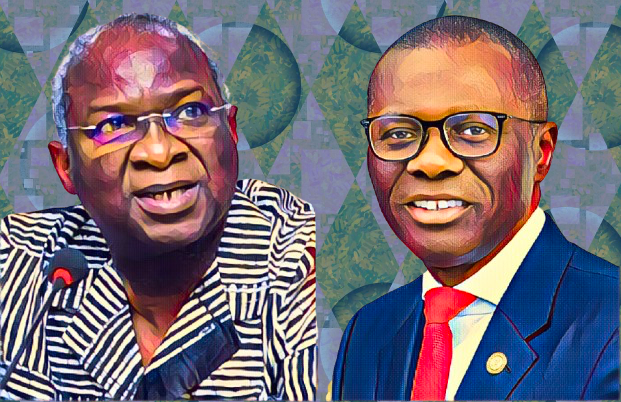KEY POINTS
- Sanwo-Olu and Fashola will lead the Lagos planning summit.
- The event focuses on building a regional and integrated megacity.
- The summit aims to promote sustainable development and compliance with building regulations.
The Lagos State Physical Planning Summit, which is set for October 15–16, 2024, would be chaired by former Governor Babatunde Fashola and Lagos State Governor Babajide Sanwo-Olu.
While Fashola, a former Minister of Works and Housing, will give the keynote talk with an emphasis on infrastructure and urban planning, Sanwo-Olu will act as the Chief Host.
The Lagos State Physical Planning Permit Authority (LASPPPA) is hosting the two-day summit with the goal of strengthening ties with built environment stakeholders.
With the topic “Rethinking Lagos: A New Vision for a Regional and Integrated Megacity,” the gathering would bring together government representatives, developers, architects, and urban planners to discuss creative ways to make Lagos a sustainable megacity.
A platform for stakeholders to drive development
Considering Lagos’ expanding population and aspirations for the future, the summit will place a strong emphasis on regional integration, infrastructural development, and responsible urban growth.
Dr. Olumide Oluyinka, the Commissioner for Physical Planning and Urban Development, emphasized the significance of the occasion and the need of public participation.
Oluyinka stated, “We want everyone to have a better understanding of our planning processes.” “These plans are created with specific goals in mind, and the current emphasis is on achieving those goals within predetermined timeframes, like ten to twenty years.”
According to Punch, Oluyinka emphasized that the cooperation of locals, businesspeople, and professionals is essential to Lagos’ continued status as a regional center.
He went on to say that the goal of LASPPPA’s summit planning is to raise public awareness of sustainable development and increase public engagement.
Focus on compliance and policy implementation
Kehinde Osinaike, the General Manager of LASPPPA, emphasized the importance of the summit in tackling the obstacles that the state’s urban planning initiatives face.
As unauthorized projects continue to be a major concern, Osinaike emphasized the necessity of enforcing adherence to building laws.
Oluyinka said that the building approval rate in Lagos is currently less than 25 percent, which is less than the 18–28 percent national average.
He stated, “We are concentrating on raising this rate and making sure that all stakeholders understand and follow the master plan.”
The summit will also provide a forum for talking about the difficulties in implementing building codes and looking into solutions to expedite the approval process in order to meet the objectives of future infrastructure development.



